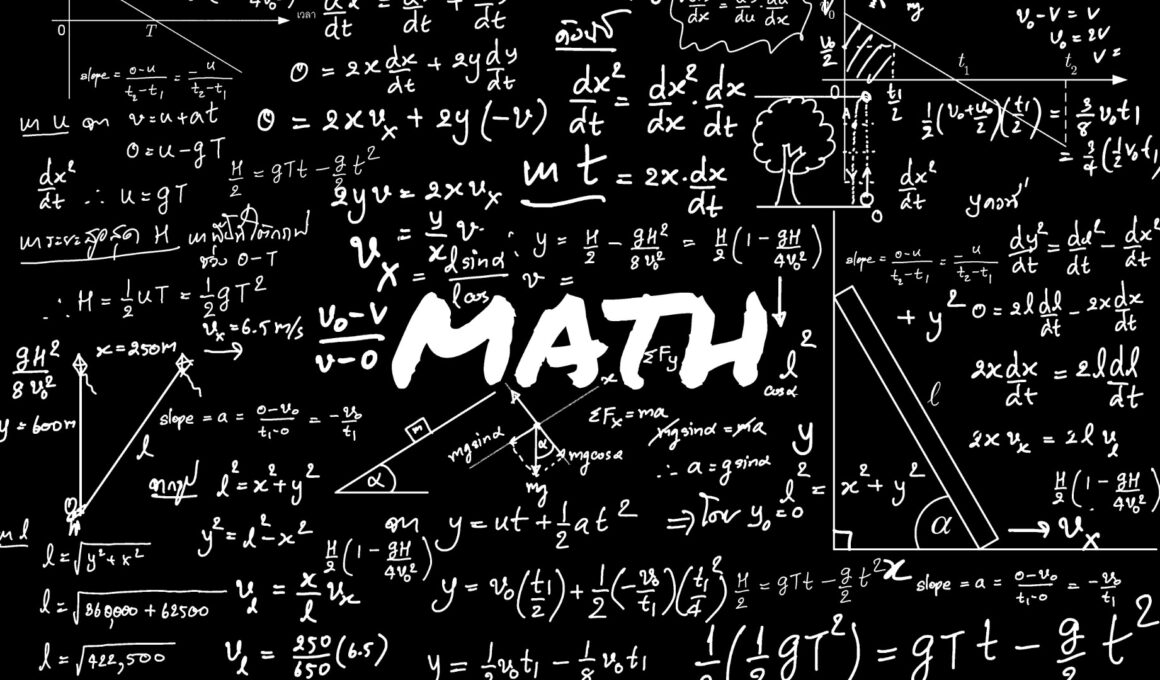The argument goes that because we have calculators today, there is no longer any real reason to be better at maths unless you happen to be a mathematician. While this is possibly true in some ways however, it is somewhat missing the point and failing to recognise how multi-faceted maths is and how it can still benefit you in a range of situations.
Firstly it is important to be good at maths for your own pride. While you may be able to use a calculator whenever you’re adding up how much you’ve spent, this doesn’t mean that you want to be reliant on a calculator and it’s always good to have a backup in the form of your brain. You will still also find yourself from time to time being asked by your friends ‘how many times does ’36 go into 1,270’ when they are trying to work something out and if you sit there with a completely blank expression this can be somewhat embarrassing. And it comes in handy in a range of other situations too – if not the additions and subtractions side of things then the ability to work out equations and algebra. For instance in programming it comes in handy, as it does in engineering and a range of other subjects. So by learning maths you are improving your ability in all these fields too.
Further though being good at maths uses a whole range of cognitive skills that we should aim to cultivate anyway – for instance it will improve our short term memory and our ability to store numbers temporarily in our brain and this is very important. At the same time it will improve our ability to turn over a logical concept in our brain and to manipulate data which can be used when working with any subject in our mind’s eye. By practising and getting better at maths we can improve our cognitive performance in almost any task – just like going to the gym and improving our muscles by repeating reps, we can improve our brain by repeating mathematical challenges. But how can you go about improving your maths?
Improve your short term memory
A lot of maths – or certainly mental arrhythmic – is the ability to hold numbers in your mind and to be able to work with them while remembering their value. In other words then you need focus and you need short term memory. So practice improving your short term memory by using brain training games and even other games such as the aptly named ‘memory pairs’.
Learn your tables
Your times tables are something that you should have learned in school, but unfortunately not all of us were able to get these down. If you don’t know your tables though this puts you at a distinct disadvantage so to improve your maths you should start learning them now. Write them all down and then try memorising them and testing yourself regularly. Eventually the answer will come instinctively and then you will be able to do a range of other sums much more easily.
Learn shortcuts
Once you know your tables these are relevant to doing larger sums because of the many shortcuts you can take while doing maths. For instance if you need to find out what five times 32 is, you are better off working this out by doing five times 2 (ten) and five times 30 (150 – which you can easily work out by doing 30 x 10 and then dividing it by two) and then adding these results together (160).
Learn techniques
You can also learn a range of techniques for doing maths by hand or in your head and these include long multiplication, long division, how to work out percentages. All of these provide you with a system that you can use to calculate your results each time.
Practice
As with anything, practice makes perfect, so if you want to learn how to do maths better then you are best off practising and there are lots of ways you can do this – by using apps on your phone or computer, by setting yourself various mental arrhythmic challenges regularly or maths by hand, or by learning another practice that incorporates maths and doing this often – such as programming.




